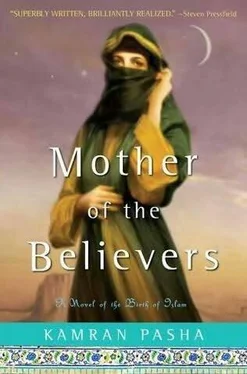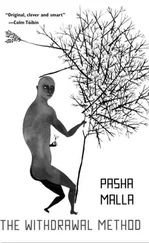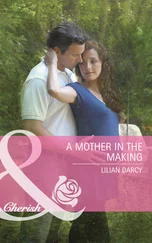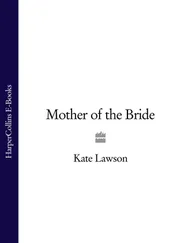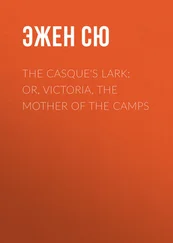My husband stepped forward with dignity and took hold of Huyayy’s richly embroidered lapel.
“The Bani Nadir have broken the Treaty of Medina with their treachery. Your lands are forfeit.”
Huyayy’s fawning mask fell and his face twisted into an ugly sneer.
“You do not have enough men to compel the Bani Nadir to abandon their homes.”
The Messenger did not move. His eyes remained locked with his adversary’s poisonous gaze.
“Once the Bani Amir learn of your intention to kill a guest under guise of sanctuary, they will stand by Medina,” he said with the power of absolute certainty. “As will their allies among the Bedouins. By God, you will leave your homes. Whether alive or dead, the choice is yours.”
And with that, the Messenger let go of Huyayy and stormed down the path back to the safety of Medina. The men immediately followed, but I lingered for a second. I stared at Huyayy, who suddenly looked lost, as if he could not understand how the journey of his life had led him to this moment.
I saw the sadness in his gray eyes, and I felt a chill race down my spine as I remembered the veiled woman with the same eyes who had betrayed the Bani Nadir. And then I ran to join my husband, the full tragedy of Huyayy ibn Akhtab branded on my heart.
A FEW DAYS LATER, I stood at the edge of the oasis, watching as the Jews of Bani Nadir evacuated their homes and prepared for the long march north. The rumor was that they would take refuge in Khaybar, a Jewish stronghold at the edge of Byzantine territory. As I watched the men load their possessions on camels and mules, my eyes fell upon a young girl with sandy hair sitting alone upon a horse. Her gaze met mine and I immediately recognized the gray eyes, which now shimmered with tears.
I nodded to Safiya in gratitude, but she looked away. And then the daughter of Huyayy ibn Akhtab turned and rode out into the desert, the secret that we shared a burden that would forever haunt her days.
I stood outside the birthing chamber as Fatima’s screams of agony echoed from beyond the thin palm-wood door. The Messenger stood by my side, holding his small grandson, Hasan, in his arms. My husband looked even more pale than usual, and his eyes were red from lack of sleep. Ever since his daughter had begun labor three nights before, he had been holding a vigil in her small house. Each of his wives had alternated spending the hours at his side, and I had just arrived to relieve the elderly Sawda, who shook her head wearily as Fatima’s cries intensified.
“She is in so much pain,” my sister wife said to me quietly. “I don’t understand it.”
I glanced over at my husband, who held his grandson tight, as if afraid that some evil djinn would appear and spirit him away into the netherworld. The boy was now two years old and his face looked remarkably like the Messenger’s, although his eyes were light brown and his curly hair had streaks of gold in it. Hasan looked at us, his grandmothers, with a placid smile, as if he could not hear the heart-wrenching cries from the adjacent room. I was always struck by how perpetually happy the child was. Indeed, I could not remember Hasan ever crying, and he seemed to find every moment of his little life a source of great delight and wonder. The “miracle child,” the people of Medina had called him, the boy who should have died in Fatima’s malnourished and tiny womb.
Hasan’s mother had endured great suffering in the final weeks of her first pregnancy and had been unable to rise from her bed, requiring constant attention from the other women of the household. So when we learned that Fatima was carrying a second child, the women of the Ahl al-Bayt worked feverishly to prepare a comfortable home and bed for the Prophet’s daughter. We expected another difficult pregnancy that would require us to spend many long nights at her side. But this time it was different. Fatima had shown no signs of discomfort in the days and weeks prior to the onset of labor, and we were delighted that our fears had come to nothing.
But the moment her water broke, Fatima had suffered terrifying pain. Her unearthly screams had chilled me to the bone, and for the first time made me thankful that I had failed to conceive a child myself.
My husband saw Sawda and me looking at him and he spoke for the first time in hours.
“It is not her own pain that she feels. It is her child’s.”
I stared at him in confusion, unable to understand what he could possibly mean. But then I realized I shouldn’t have been surprised. Nothing about Fatima had ever made much sense to me.
The Messenger turned his attention to his son-in-law Ali, who sat cross-legged on the hard floor, his head buried in his hands. My husband placed a comforting hand on the young man’s shoulders as Fatima’s wails continued unabated. It seemed so strange to see this mighty warrior hunched over, as if the suffering of his wife were far more painful to him than any wound he had endured at Badr or Uhud. I suddenly realized with a flash of surprise that Ali truly loved Fatima. I had never thought much about it before that moment. Perhaps I had assumed that the marriage was nothing more than a political union meant to bring the young man closer to Muhammad, his cousin and mentor.
But looking at his sagging shoulders, his body trembling from suppressed grief, I finally understood that the bond between Ali and Fatima was deeper than I understood. They were both misfits, people who did not and could not fit into the cruel world, and in each other’s company they must have found solace. And if, as it appeared, Fatima failed to survive the childbirth, Ali would be truly alone. With few friends or supporters aside from the Messenger himself, he would be plunged into a desert of solitude that would make the empty wastes of the Najd look green with life. For the first time in my life, I felt sorry for him.
And then, without any warning, the cries from the birthing chamber ceased abruptly, followed by a terrible silence that was more frightening than all the hours of agony that had preceded it.
Ali lifted his head and met the Messenger’s eyes. I saw both men exchange a look of terrible grief and I felt tears welling in my eyes. The Prophet had lost another daughter. Fatima, his most beloved child, who was the plainest and simplest of his girls, and yet the one he treated with such open devotion that it bordered on reverence. Ever since Khadija had died, Fatima had been the rock that held him steady amid the crashing waves of his destiny. Even though I knew that I was his favorite wife, Fatima held a place in his heart that I could never reach. And now she was gone.
I moved to comfort my husband, when, to my absolute surprise, I heard the cry of a baby. The Messenger and Ali both turned to stare at the door to Fatima’s chamber, which swung open, revealing an elderly midwife named Malika standing in the threshold, her birthing apron covered in blood.
Malika looked as if her face had aged a dozen years in the past hour. And just beyond her weary form, to my disbelief, was Fatima in her bed, alive and holding a tiny baby swaddled in green.
“Blessings to the Ahl al-Bayt.” Malika spoke, her voice as heavy and exhausted as that of a warrior crawling back from the battlefield. “The Messenger has another grandson.”
As if swimming deep underwater, my husband stepped slowly inside the room, followed by Ali. Sawda and I hesitated and then stepped behind the men, keeping a respectful distance as they leaned over Fatima and stared in silence at her newborn baby boy.
As I stepped inside the birthing chamber, I felt as if I were entering a dream. My vision flickered like a candle caught in a storm and I felt a strange chill even though the night air was unseasonably hot.
Читать дальше
